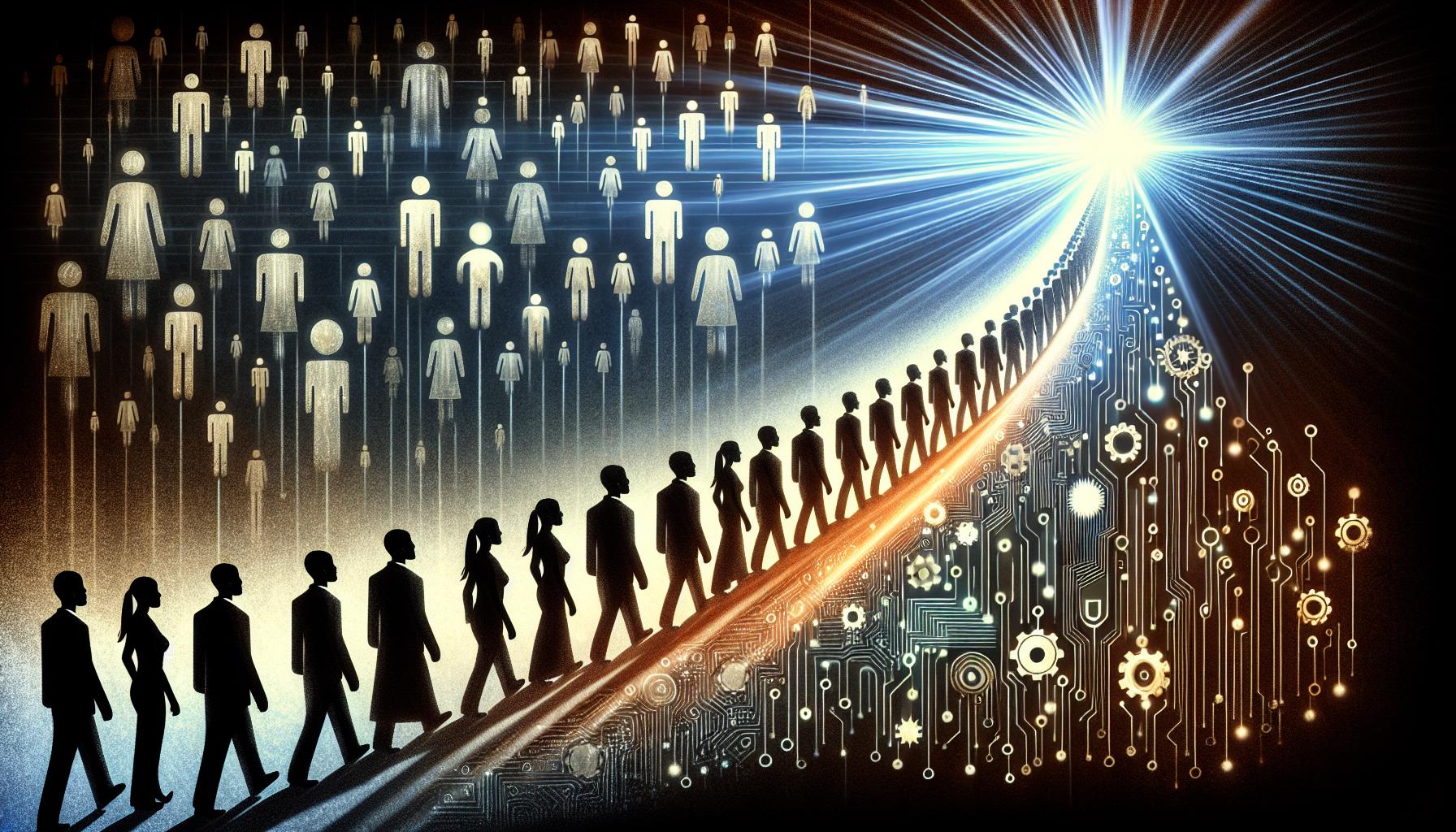AI and The Future of Training: Personalized Learning Paths for Employees

Introduction
The landscape of employee training is undergoing a monumental shift, thanks to advancements in Artificial Intelligence (AI). Gone are the days of one-size-fits-all training modules; we are ushering in an era where learning experiences are tailor-made for each individual. In this article, we will explore how AI can curate personalized learning experiences for employees based on their existing knowledge and skill gaps. We will also delve into the mechanics of machine learning algorithms that analyze performance data to recommend tailored training programs. Moreover, we will highlight the benefits of continuous learning and development, citing real-world examples of organizations that have embraced AI-driven training platforms.
The Power of Personalized Learning Paths
Personalized learning paths have become the cornerstone of modern employee training programs. Unlike traditional methods, personalized learning paths consider the unique attributes of each employee, including their current skill set, experience levels, and specific role within the company. AI plays a pivotal role in achieving this level of customization. By analyzing vast amounts of data, AI-driven platforms can create individualized training programs that ensure each employee receives the specific guidance and resources they need to excel.
How AI Curates Personalized Learning Experiences
AI systems utilize machine learning algorithms to evaluate multiple facets of an employee's professional profile. Performance metrics, feedback from supervisors, and even peer reviews can be integrated into the analysis. This holistic approach allows the AI to identify both strengths and areas for improvement. For instance, if an employee is consistently excelling in project management but shows gaps in technical skills, the AI can recommend a training program focused on enhancing their technical expertise without neglecting their project management capabilities.
Machine Learning Algorithms: The Backbone of AI Training Platforms
The core component of any AI-driven training system is its underlying machine learning algorithms. These algorithms are designed to process large quantities of data to detect patterns and trends. For instance, unsupervised learning algorithms can cluster employees into different groups based on their skills and performance, subsequently recommending tailored training modules for each group. On the other hand, supervised learning algorithms can predict training outcomes based on historical data, allowing for continuous refinement of training materials.
Benefits of Continuous Learning and Development
Continuous learning and development are not just buzzwords; they represent a fundamental shift towards a more dynamic and adaptable workforce. Personalized learning paths powered by AI support this philosophy by providing employees with the tools they need to grow continuously. This has several benefits:
- Employee Engagement: Personalized training keeps employees engaged as the material is relevant and immediately applicable to their roles.
- Retention: Employees are more likely to remain with a company that invests in their professional development.
- Innovation: A culture of continuous learning fosters innovation as employees are encouraged to acquire new skills and apply them creatively.
Case Studies: Organizations Leading the Way
Several forward-thinking organizations have already adopted AI-driven training platforms to enhance employee growth and skill development. Here are a few notable examples:
IBM: Pioneering AI in Employee Training
IBM has been a front-runner in incorporating AI into its training programs. Utilizing its Watson AI, the company has developed personalized learning paths for employees that adapt in real-time based on individual performance metrics and feedback. This approach has facilitated more effective skill development and higher employee satisfaction.
Deloitte: Leveraging AI for Tailored Training
Deloitte has implemented AI-driven training platforms to provide its workforce with customized learning experiences. By analyzing performance data and feedback, the AI identifies skills gaps and recommends targeted training modules. This has resulted in improved performance and greater employee engagement across the company.
Accenture: Continuous Learning and Development
Accenture has embraced AI to foster a culture of continuous learning. The company uses machine learning algorithms to create personalized training programs that evolve with the employee's career progression. This approach not only enhances skill sets but also supports long-term career development and retention.
Challenges and Future Directions
While the benefits of AI-driven personalized learning are substantial, there are challenges that organizations must address:
- Data Privacy: Ensuring the privacy and security of employee data is paramount.
- Bias in Algorithms: Algorithms must be continually monitored to avoid biases that could inadvertently affect training recommendations.
- Scalability: Implementing AI-driven training systems at scale can be resource-intensive.
Despite these challenges, the future of AI in personalized learning looks promising. Continuous advancements in AI and machine learning will only expand the capabilities of these systems, making them more efficient, scalable, and effective.
Conclusion
AI is revolutionizing the way we approach employee training by offering personalized learning paths tailored to individual needs. Through the use of machine learning algorithms, performance data, and feedback, AI-driven platforms can create highly effective training programs that foster continuous learning and development. Organizations that embrace these technologies are not only enhancing their employees' skills but also promoting a culture of knowledge sharing and innovation. As we look to the future, the role of AI in personalized learning will undoubtedly become even more integral, paving the way for smarter, more engaged, and highly skilled workforces.




